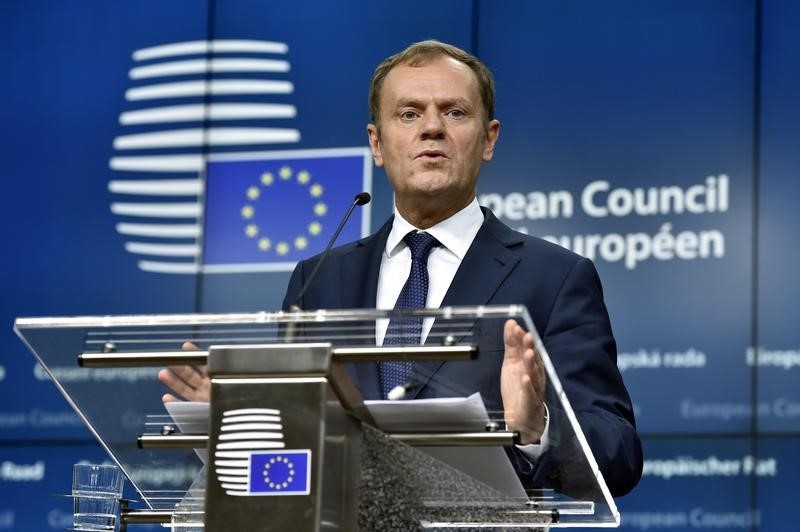BIARRITZ, France, Aug 24 (Reuters) - The president of the European Council on Saturday rebuffed Donald Trump's suggestion that Russia be readmitted to the Group of Seven (G7) advanced economies, saying there were even more reasons than before for keeping Moscow out.
The U.S. president has said it would be "appropriate" to have Russia rejoin what used to be the G8, which Russia was excluded from in 2014 after it annexed Ukraine's Crimea and then backed an anti-Kiev rebellion in the industrial region of Donbas in eastern Ukraine.
"One year ago, in Canada, President Trump suggested reinviting Russia to G7, stating openly that Crimea's annexation by Russia was partially justified. And that we should accept this fact," said Donald Tusk who, as president of the European Council, represents the EU's 28 member states.
"Under no condition can we agree with this logic," he added.
Earlier this week Germany, France and Britain also rejected the idea of inviting Russia back into the group.
The EU and the United States have imposed sanctions on Russia over its role in the Ukraine conflict, in which some 13,000 people have been killed to date, according to U.N. data.
Fighting continues in Donbas, albeit at a low intensity, and a peace process brokered by Berlin and Paris has stalled.
Tusk said the reasons for Moscow's ejection from the group remain valid and there have been new reasons since then for its continued exclusion, including "the Russian provocation on the Azov Sea", an apparent reference to the detention of Ukrainian sailors last year.
"Second: when Russia was invited to G7 for the first time, it was believed that it would pursue the path of liberal democracy, rule of law, and human rights. Is there anyone among us, who can say with full conviction, not out of business calculation, that Russia is on that path?," Tusk said.
He said he would try to convince leaders at the G7 summit that it would be better to invite Ukraine's president to the next G7 meeting rather than bring Russia back into their fold.
Trump has praised Russian President Vladimir Putin despite Western criticism of his record, and discord over the group's relationship with Moscow is just one of several areas of tension in trans-Atlantic ties that will be on display at the summit.
The G7 groups the United States, Japan, Germany, Britain, France, Italy and Canada.
